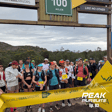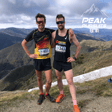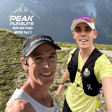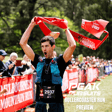
Trish McKibbin: Fueling, Family, and the Trail to World Mountain & Trail Championships
Trish McKibbin returns to the show ahead of representing Australia at the World Mountain & Trail Running Championships. In this episode, she reflects on navigating relative energy deficiency (RED-S), the lessons learned from Tarawera and APTRC and how changes to her nutrition, recovery, and training have reshaped her approach.
We also discuss the balance between family, work, and elite-level preparation, along with the confidence she’s drawing from her past international race experiences.
***Don’t forget, use code PPP at Bix’s website for 20% off Bix products, exclusive to PPP listeners!***
Thanks for tuning in to Peak Pursuits! Connect with us on Instagram @peakpursuits.pod to share your thoughts, questions, and trail stories. Until next time, keep hitting the trails and chasing those peak pursuits!
Follow Trish McKibbin: Instagram | Strava
Follow James: Instagram | Strava | Website
Music from #Uppbeat (free for Creators!):https://uppbeat.io/t/mood-maze/trendsetter
License code: K08PMQ3RATCE215R










